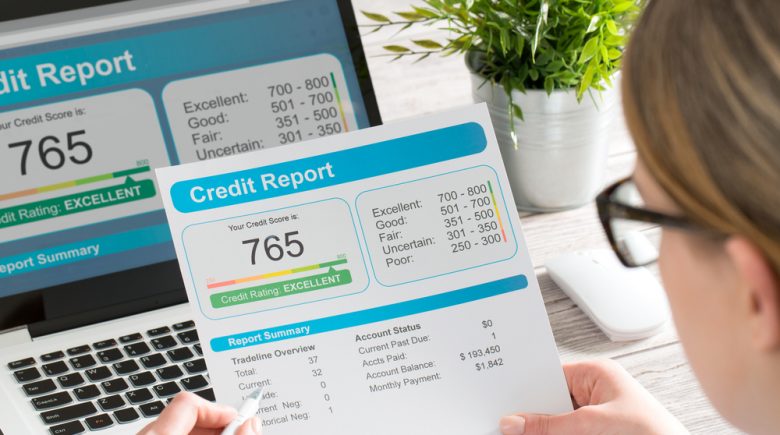Credit is money that you have borrowed so you will be able to purchase those items or services that you do not have the money to pay for all at once. A grantor loans you the money, and you agree to pay back the grantor in monthly payments. You and the grantor will agree on a certain amount of finance charges before you are allowed to use any credit.
Credit Cards;
Most Americans who are over 18 years of age usually have at least one credit card. Credit card offers are everywhere. You get them in the mail, see their ads on the TV, and even see them advertised on the side of buses.
Obtaining credit can be done through a bank or a number of grantors who will enter into a financial agreement with you, so you can buy what you need on time and pay them back monthly. The lender will expect you to pay them back in full with an additional fee or interest. The interest charge would be added to what you owe each month if you do not pay off the full balance monthly.
For the everyday person, credit cards can give people many different advantages. Credit cards can be used for budgeting, convenience, emergency protection, security, traveling or for any reason you see fit. Credit cards, when used responsibly can enhance your life every day.
Installment Credit;
A good example of installment credit is mortgages, home equity loans, student loans, and car loans. Creditors would grant you a loan of a specific amount and you agree to pay back that loan, plus interest in a certain amount of time. It could be 30 days or 30 years. It is whatever length of time that the two of you agree upon at signing. The installment payments would be the same amount monthly.
How Does an Installment Loan Affect Your Credit Score?
Installment loans can affect your credit score because they are reported to the credit agencies by the lender. The credit agencies will collect information on how well you keep up with paying your bills and will give lenders your credit history.
How Are Installment Loans Similar to Credit Card Debt in Affecting Your Credit Score?
When you pay off an installment loan, your score with the credit bureaus may not go up very much. When you pay off a credit card your scores will go up much better. They are treated differently for a few reasons. They include risk prediction and collateral. Risk prediction is a big part of your credit score.
Lenders want to make sure you are good, if not great, candidate for paying back a loan. They want to know if you are going to fall behind in payments, or pay off what you owe to them. Installment loans are more regular, and most people will want to keep the equity or collateral that they have put up for the loan.
Credit cards are less likely to be as stable as an installment loan. The borrowers do not have the same incentives for paying back credit card obligations as they do for installment loans. Borrowers can buy anything they want on a credit card, up to their limit. There is no collateral put up by the borrower for a credit card.
Payment History on Installment Loans
When you have an installment loan, you should pay close attention to paying your installment payments on time every month. If you are always late in paying your monthly installment loan payments it will reduce your credit score in a big way.
Benefits of Installment Loans on Your Credit Score
The major benefit of having installment loans is that it will prove to lenders that you can handle any type of loan. Paying them off on time or even early will be a great asset on your credit history. Grantors of loans will be pleased with someone that has a variety of loans on their credit history, that is paid off in a timely manner.
Negative Impacts of Loans
The negative impact of loans is that when you first get a loan of any type, it will affect your credit score in a negative way. Your debt-to-credit is looked at when applying for any loan. If you have a credit limit of $5,000 and you are using more than half of that credit, then your debt ratio is higher than your credit ratio.
This will make your credit score a bit lower. As you pay off the loan, your credit score will slowly go back up. Applying for a loan will also decrease your credit score, but not too much and only for a short period of time.
Revolving Credit;
Revolving credit is when you have a store credit for up to a certain amount, and you can charge up to the agreed limit. Many people have revolving credit limits in clothing stores, home improvement stores and even at their small little local businesses. Each month that you carry a balance you will have an interest tacked onto that amount. You will then owe the balance plus the interest. Many credit cards are the same as revolving credit.
Missing a revolving credit payment can hurt your FICO score as much as 90 to 110 points if it is 30 days late. Paying your payments on time can strengthen your score over the time of the loan.
Service Credit;
Anything you get services for is a credit agreement. A cell phone you pay monthly, your electric, water, gym fees, and your garbage collection are all done with service agreements. You pay them monthly. The only difference with service credit is that not all of them will report your credit history to any of the credit bureaus.
The three credit bureaus that creditors use is, Experian, Equifax, and TransUnion. These bureaus each have their own credit scores for you along with your FICO Scores.
Keeping good credit is necessary if you want the benefits and ease of purchasing a home, large ticket items, or a car. Your credit information may also be used in other areas of your life. Landlords and potential employers may also look into your credit history to see if you are a good candidate for them in the business world or the neighborhood.
When applying for any kind of a loan, your creditor will check out the three major credit bureaus to learn about your credit history and see what kind of a risk you would be to them. Creditors what to make sure that if they lend you money, give you credit for services or big-ticket items, that you would be able to pay them back.
They want to know if you are relying too much on the credit you have by using too much of the credit that is available to you. It is a red flag to them that you may not have the funds each much to pay your bills. The worst thing to do is to max out the credit cards you have.
Creditors or grantors of credit will check out your reported income, how long you have worked at your present job, how long you have lived at the reported address, and the balances of your bank accounts. Ultimately, your credit will determine whether you get the credit or not that you are applying for in your application.
Everyone should be watching their credit history. The payment history you have makes up for 35% of your credit score. If you are making late payments repeatedly, then you are hurting your credit history in the worst way.
Credit is money that you have borrowed so you will be able to purchase those items or services that you do not have the money to pay for all at once. A grantor loans you the money, and you agree to pay back the grantor in monthly payments. You and the grantor will agree on a certain amount of finance charges before you are allowed to use any credit.
Credit Cards;
Most Americans who are over 18 years of age usually have at least one credit card. Credit card offers are everywhere. You get them in the mail, see their ads on the TV, and even see them advertised on the side of buses.
Obtaining credit can be done through a bank or a number of grantors who will enter into a financial agreement with you, so you can buy what you need on time and pay them back monthly. The lender will expect you to pay them back in full with an additional fee or interest. The interest charge would be added to what you owe each month if you do not pay off the full balance monthly.
For the everyday person, credit cards can give people many different advantages. Credit cards can be used for budgeting, convenience, emergency protection, security, traveling or for any reason you see fit. Credit cards, when used responsibly can enhance your life every day.
Installment Credit;
A good example of installment credit is mortgages, home equity loans, student loans, and car loans. Creditors would grant you a loan of a specific amount and you agree to pay back that loan, plus interest in a certain amount of time. It could be 30 days or 30 years. It is whatever length of time that the two of you agree upon at signing. The installment payments would be the same amount monthly.
How Does an Installment Loan Affect Your Credit Score?
Installment loans can affect your credit score because they are reported to the credit agencies by the lender. The credit agencies will collect information on how well you keep up with paying your bills and will give lenders your credit history.
How Are Installment Loans Similar to Credit Card Debt in Affecting Your Credit Score?
When you pay off an installment loan, your score with the credit bureaus may not go up very much. When you pay off a credit card your scores will go up much better. They are treated differently for a few reasons. They include risk prediction and collateral. Risk prediction is a big part of your credit score.
Lenders want to make sure you are good, if not great, candidate for paying back a loan. They want to know if you are going to fall behind in payments, or pay off what you owe to them. Installment loans are more regular, and most people will want to keep the equity or collateral that they have put up for the loan.
Credit cards are less likely to be as stable as an installment loan. The borrowers do not have the same incentives for paying back credit card obligations as they do for installment loans. Borrowers can buy anything they want on a credit card, up to their limit. There is no collateral put up by the borrower for a credit card.
Payment History on Installment Loans
When you have an installment loan, you should pay close attention to paying your installment payments on time every month. If you are always late in paying your monthly installment loan payments it will reduce your credit score in a big way.
Benefits of Installment Loans on Your Credit Score
The major benefit of having installment loans is that it will prove to lenders that you can handle any type of loan. Paying them off on time or even early will be a great asset on your credit history. Grantors of loans will be pleased with someone that has a variety of loans on their credit history, that is paid off in a timely manner.
Negative Impacts of Loans
The negative impact of loans is that when you first get a loan of any type, it will affect your credit score in a negative way. Your debt-to-credit is looked at when applying for any loan. If you have a credit limit of $5,000 and you are using more than half of that credit, then your debt ratio is higher than your credit ratio.
This will make your credit score a bit lower. As you pay off the loan, your credit score will slowly go back up. Applying for a loan will also decrease your credit score, but not too much and only for a short period of time.
Revolving Credit;
Revolving credit is when you have a store credit for up to a certain amount, and you can charge up to the agreed limit. Many people have revolving credit limits in clothing stores, home improvement stores and even at their small little local businesses. Each month that you carry a balance you will have an interest tacked onto that amount. You will then owe the balance plus the interest. Many credit cards are the same as revolving credit.
Missing a revolving credit payment can hurt your FICO score as much as 90 to 110 points if it is 30 days late. Paying your payments on time can strengthen your score over the time of the loan.
Service Credit;
Anything you get services for is a credit agreement. A cell phone you pay monthly, your electric, water, gym fees, and your garbage collection are all done with service agreements. You pay them monthly. The only difference with service credit is that not all of them will report your credit history to any of the credit bureaus.
The three credit bureaus that creditors use is, Experian, Equifax, and TransUnion. These bureaus each have their own credit scores for you along with your FICO Scores.
Keeping good credit is necessary if you want the benefits and ease of purchasing a home, large ticket items, or a car. Your credit information may also be used in other areas of your life. Landlords and potential employers may also look into your credit history to see if you are a good candidate for them in the business world or the neighborhood.
When applying for any kind of a loan, your creditor will check out the three major credit bureaus to learn about your credit history and see what kind of a risk you would be to them. Creditors what to make sure that if they lend you money, give you credit for services or big-ticket items, that you would be able to pay them back.
They want to know if you are relying too much on the credit you have by using too much of the credit that is available to you. It is a red flag to them that you may not have the funds each much to pay your bills. The worst thing to do is to max out the credit cards you have.
Creditors or grantors of credit will check out your reported income, how long you have worked at your present job, how long you have lived at the reported address, and the balances of your bank accounts. Ultimately, your credit will determine whether you get the credit or not that you are applying for in your application.
Everyone should be watching their credit history. The payment history you have makes up for 35% of your credit score. If you are making late payments repeatedly, then you are hurting your credit history in the worst way.



